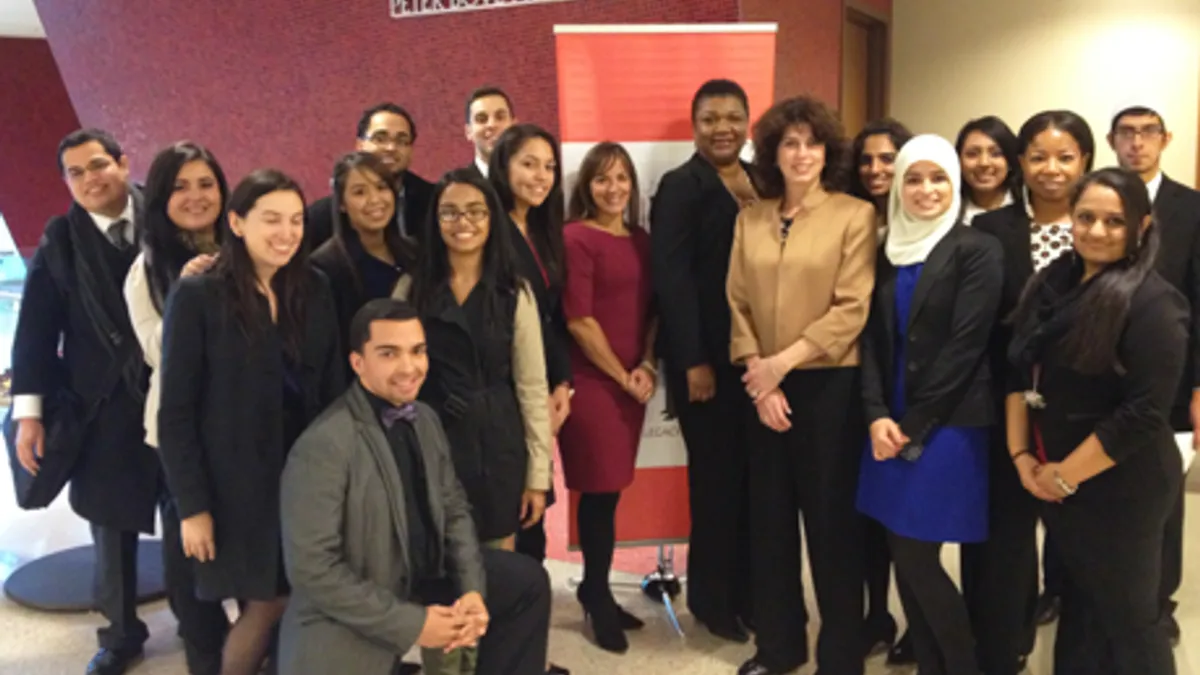When Jerome Williams was a doctoral student in the 1980s, he saw no teachers of color, and often he was the only minority student in the classroom. Later, he felt lonely as an African American professor teaching business alongside mostly white male colleagues.
Today, Williams takes pride in helping to create one of the most diverse faculties in a business college in the country. A marketing professor and now executive vice chancellor and provost at Rutgers University-Newark, he said minority students appreciate a campus where faculty reflects the community makeup.
“If we make the front of the classroom more diverse, we can attract a more diverse student body to pursue Ph.D.s and to become professors themselves or to go out and innovate in the workplace,” he said.
That thought is backed by Dean of Rutgers Business School Lei Lei, who says a diverse faculty provides students with the benefit of different perspectives which, in turn, enriches their academic experience.
“At Rutgers, we believe a diverse campus offers tremendous opportunities for us, fosters an understanding and respect of others, and provides our students with access to professors from diverse backgrounds who serve as important role models,” Lei Lei said. “Our ability to attract a diverse student body also helps to ensure that the business world of tomorrow will be strengthened by a wide variety of talent in its workforce and leadership.”
Like many schools, Rutgers struggled to recruit undergraduates of color to continue their higher education journey. More often than their white peers, students of color need to go to work immediately, have family obligations or can’t afford enroll in graduate school after earning a bachelor’s degree. Not only that, for many, negative experiences with the academy — from biases and microaggressions to overt racism on campus — while enrolled as students turn them off from the sector completely, and they choose to take their degrees and never look back.
The Rutgers Business School turned its luck around in the early 1990s when the school partnered with the PhD Project, a national program that has increased faculty diversity at hundreds of college and university business schools. The project works to attract and support African Americans, Latinos and Native Americans to choose college teaching as a career and to succeed in the rigorous process of obtaining a Ph.D., encouraging them to go into the professoriate.
The program gets to the root cause of minority under-representation in corporate jobs — very few minority college students study business as a way to a corporate career. Diversifying faculty attracts more people of color to study business, and better prepares all students to succeed in a diverse workforce.
The PhD Project serves as a support network for minority students who are pursuing business doctoral degrees in five areas: accounting, finance, information systems, management and marketing, advocates say.
The partnership has helped Rutgers Business School form a faculty that’s considered one of the most diverse in the nation, outside of historically black universities.
“We found a way that proved an immediate success,” Williams said. “We learned we needed to find people already in careers who are willing to make the move to academics.”
A diverse professoriate benefits the entire community
Minority professors can serve as role models for students, he noted, but they’re good for everyone on campus.
“When you have more diversity, you have people from different backgrounds problem solving and making decisions” Williams said. “When there’s less diversity, students don’t get as rich an experience.”
And as part of their professional research, professors of color may explore areas their white colleagues may not. Rutgers-Newark is an urban school, and a diverse faculty may be more likely to tackle issues important to that community.
“As an African American, I do a lot of work in discrimination in banking, which others might not pursue,” Williams said. “We’ve broadened the kinds of research that is getting done.”
The school serves as an anchor for the community, he said.
“We are not only in the community, but of the community,” Williams said. “We like to do not only public research, but to do research that impacts students’ lives. It becomes part of the DNA, doing research that helps a diverse community.”
Led by minority professors, students also may think about ways their own future work could have an impact.
“If you are an engineer, you can help build cameras that are sensitive to different skin tones, for example,” he said. “In the workplace, you can point out when things are wrong, such as the only skin color in the Crayon box being ‘flesh’ or selling fried chicken only on African American holidays. Others might not see how that is wrong.”
“Look at the diversity of this society,” Williams continued. “Businesses need these individuals.”
Aziza Jones, a doctoral student at Rutgers, said the school’s diversity makes her feel part of “protected environment” where she can focus and be more confident.
“I don’t have to worry about how I’m presenting myself as a black person, only how I’m presenting myself as a scholar,” Jones said. “It took a weight off my shoulders and I can focus on being an academic.”

















